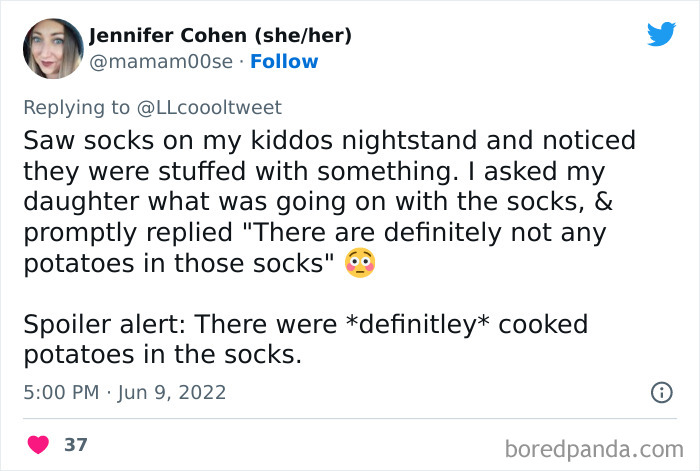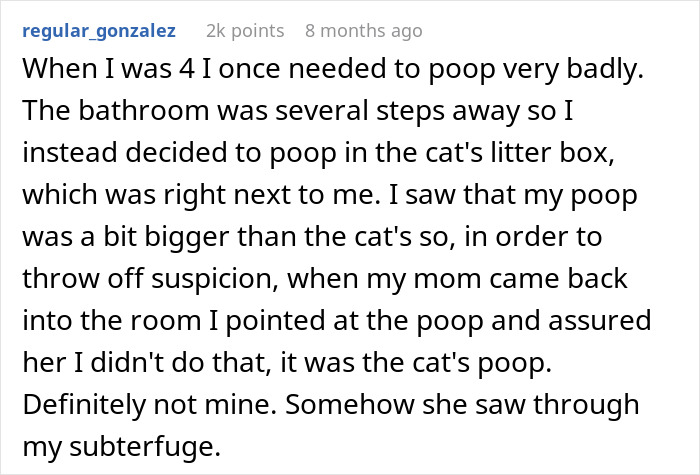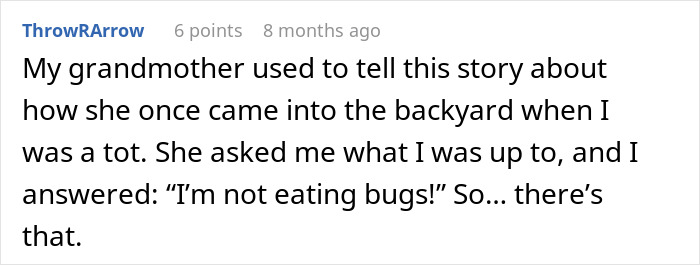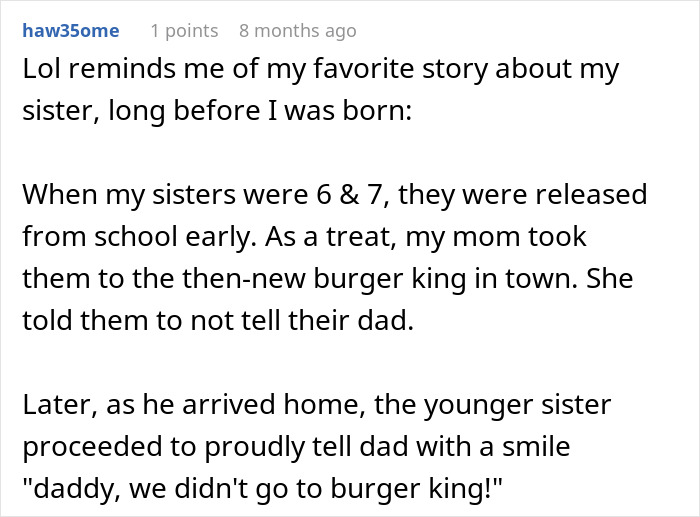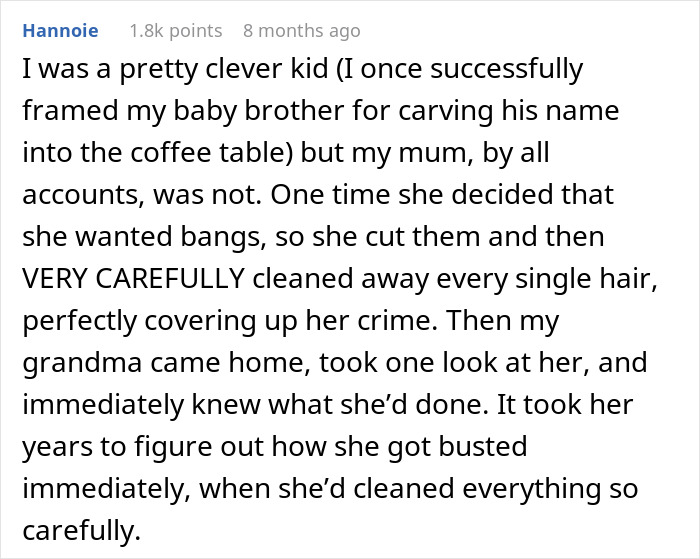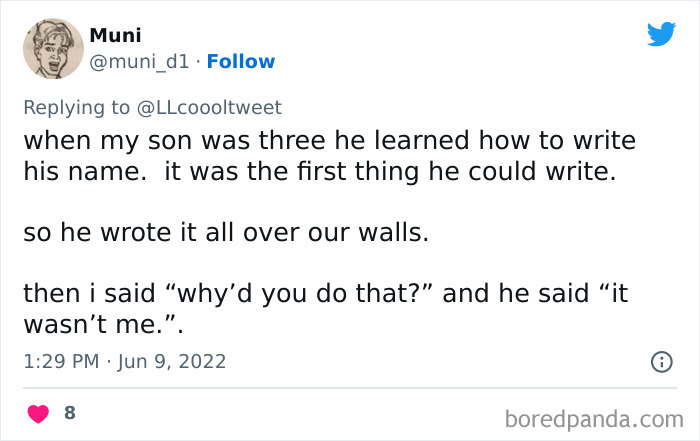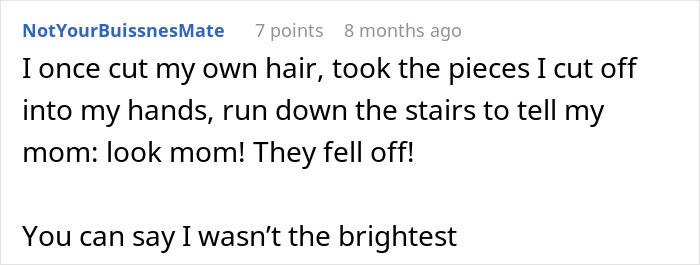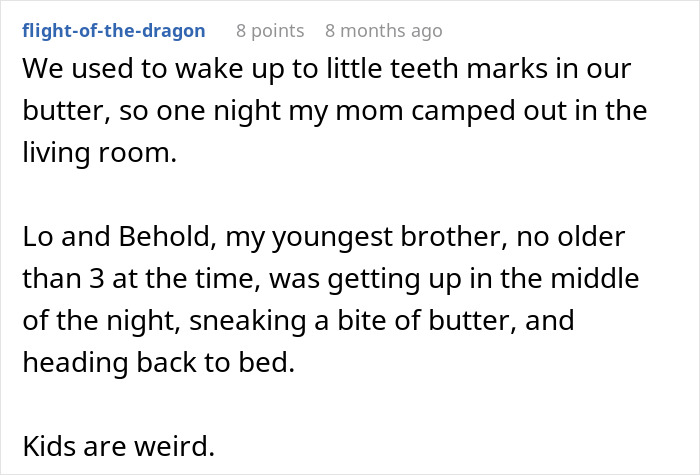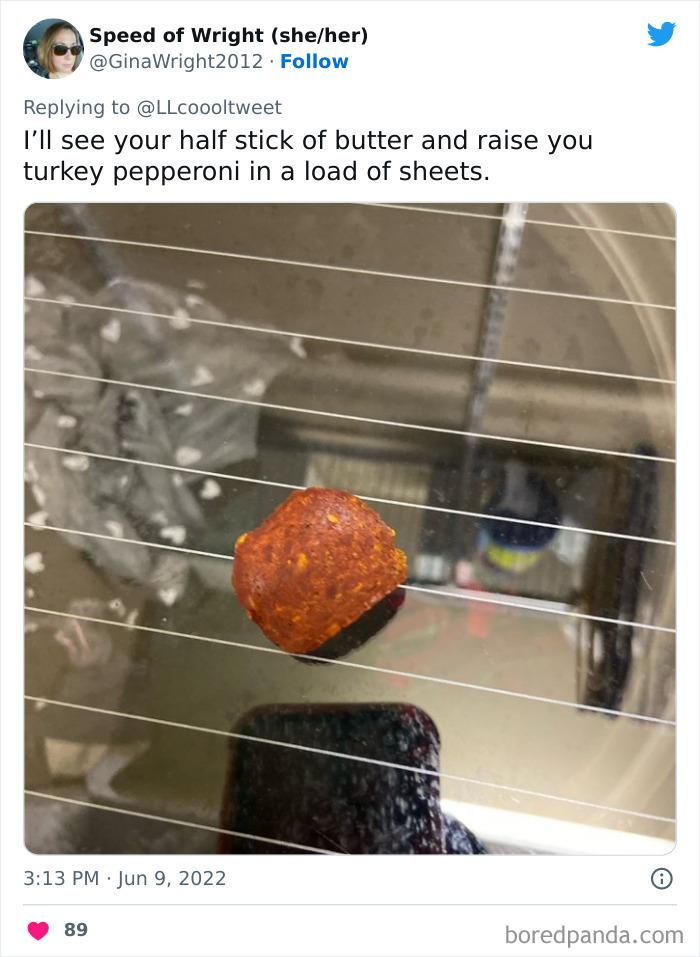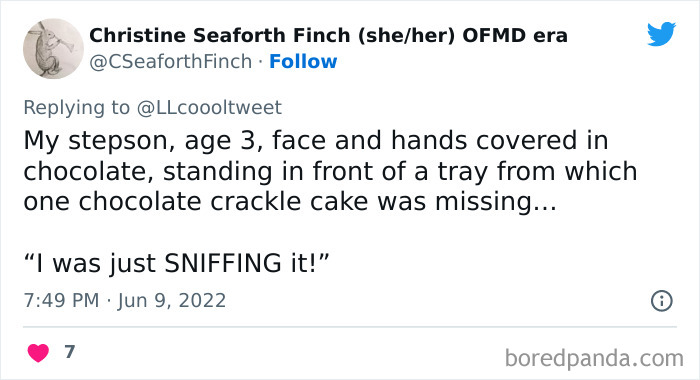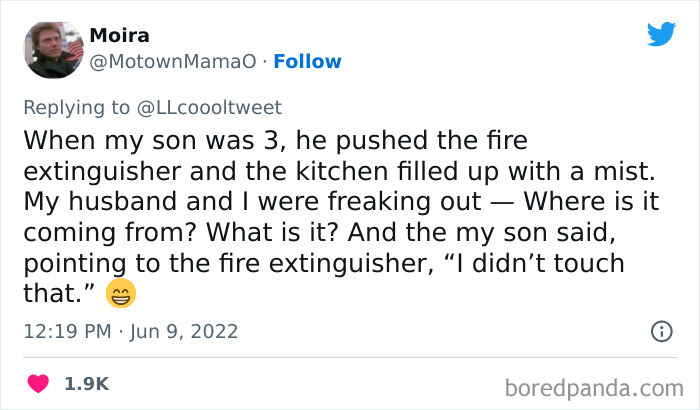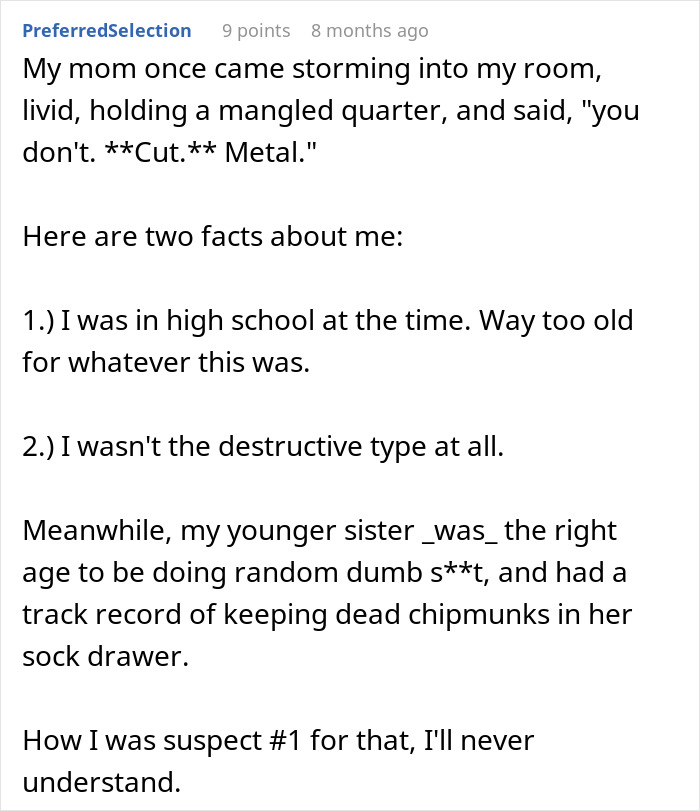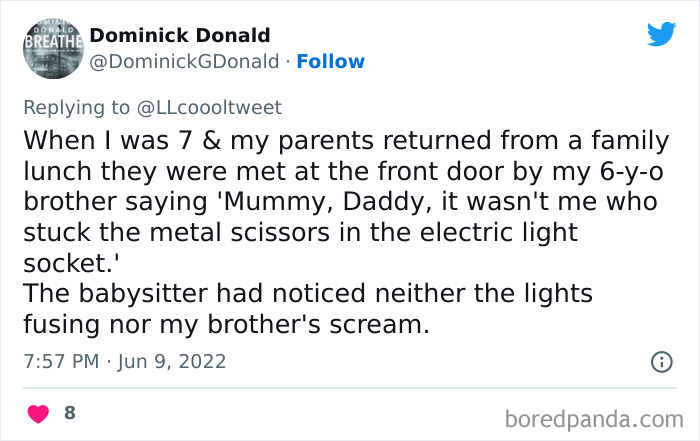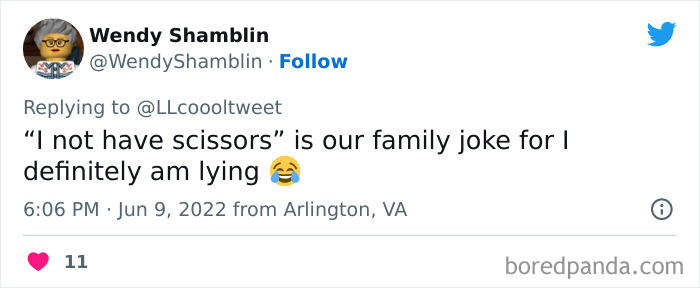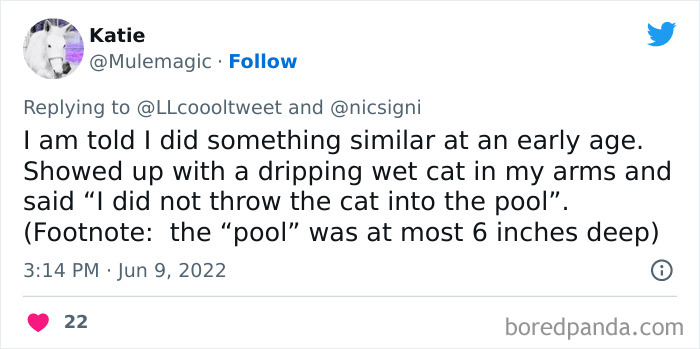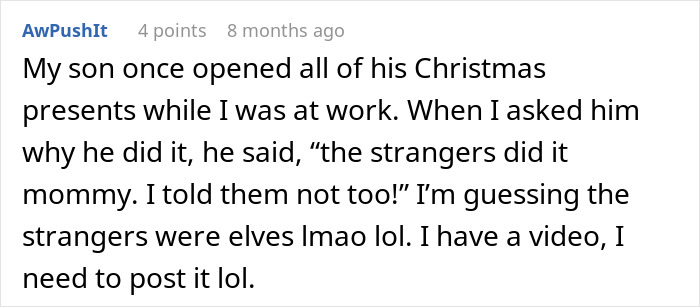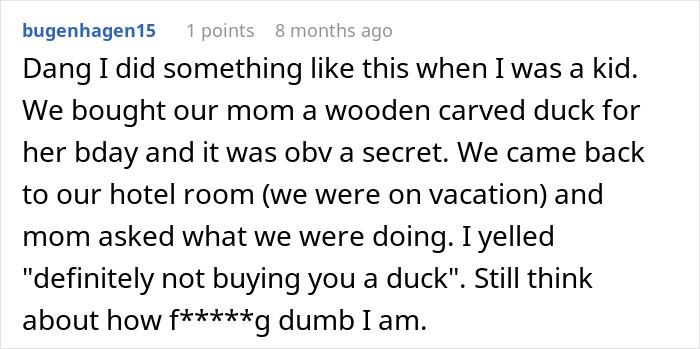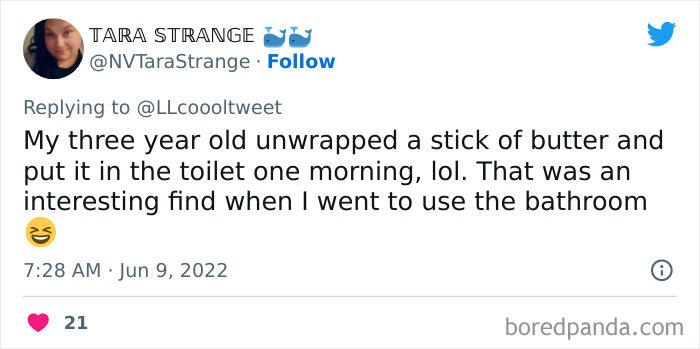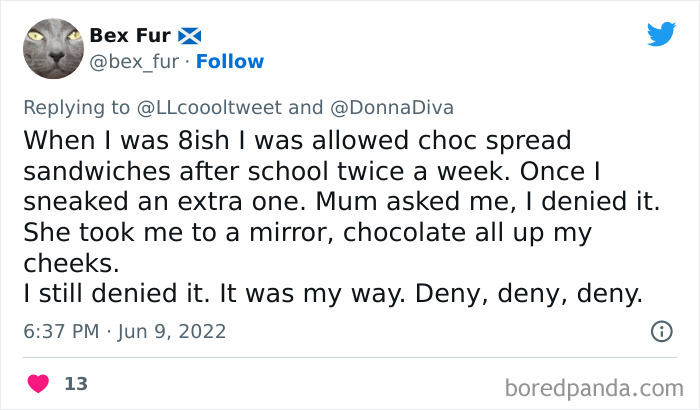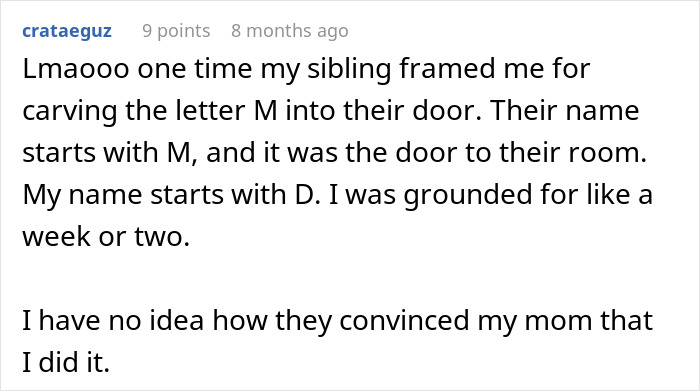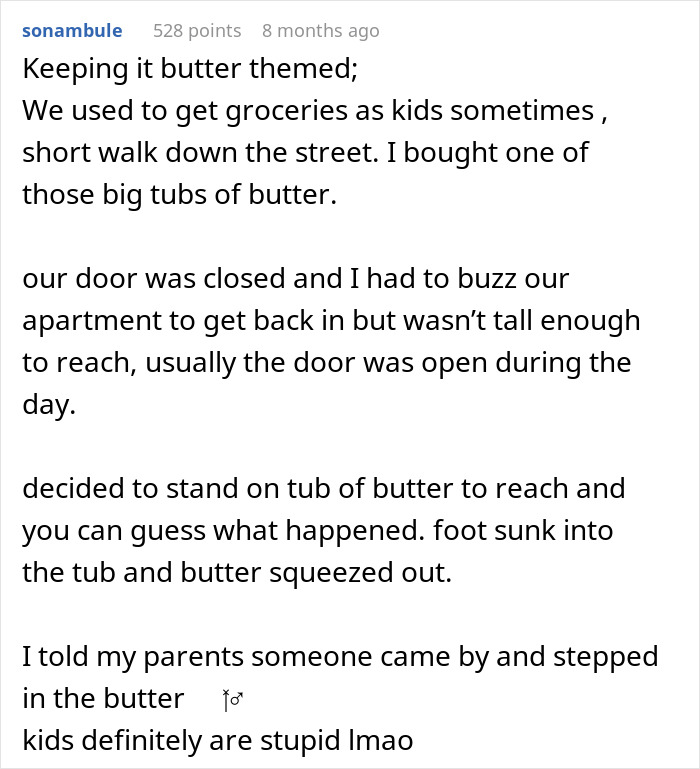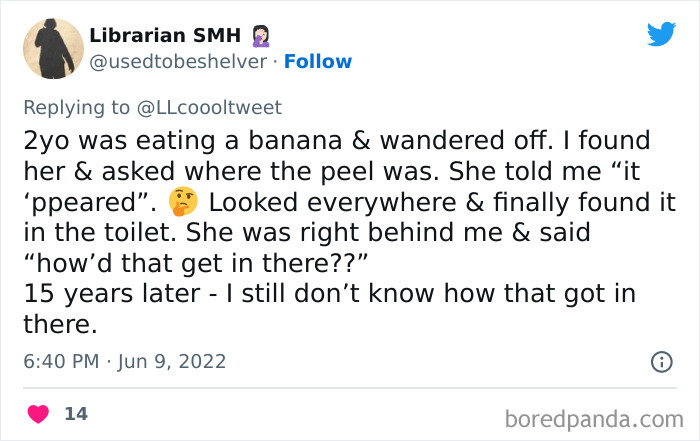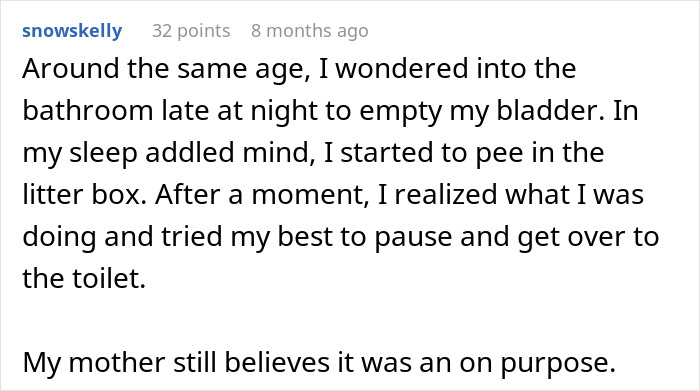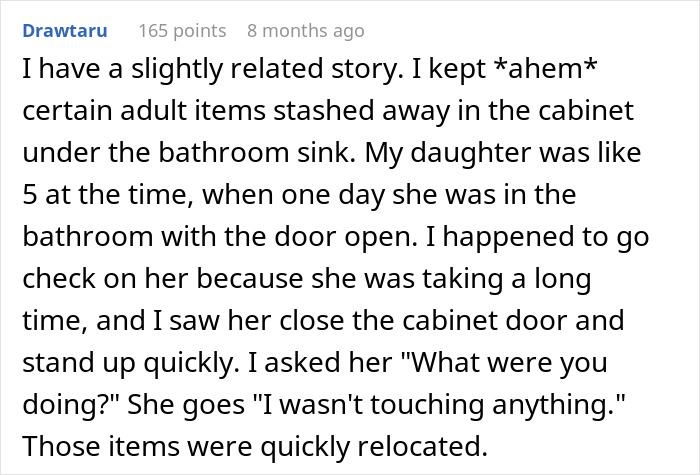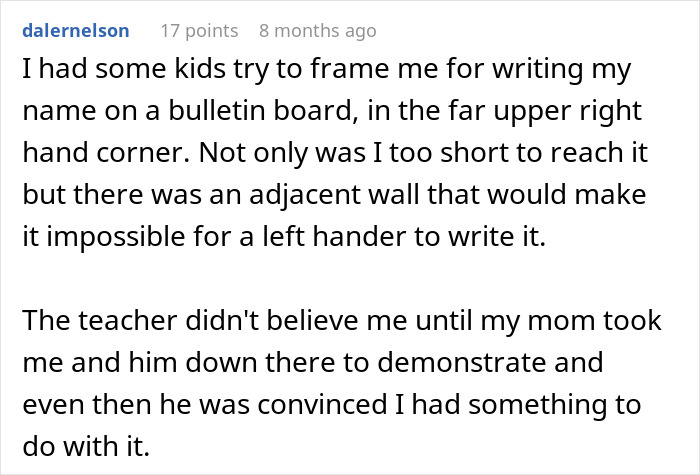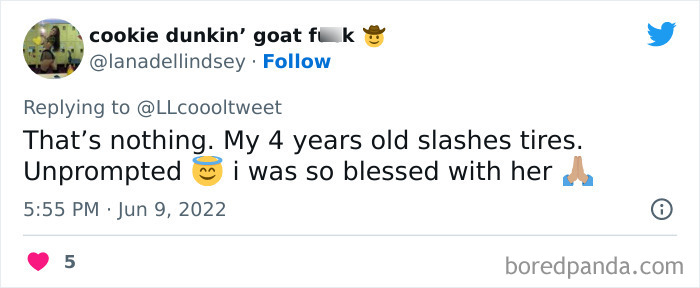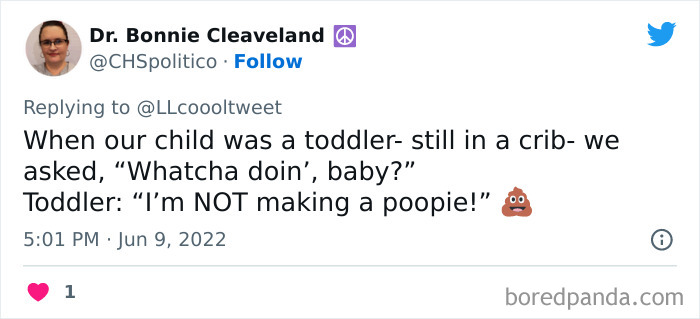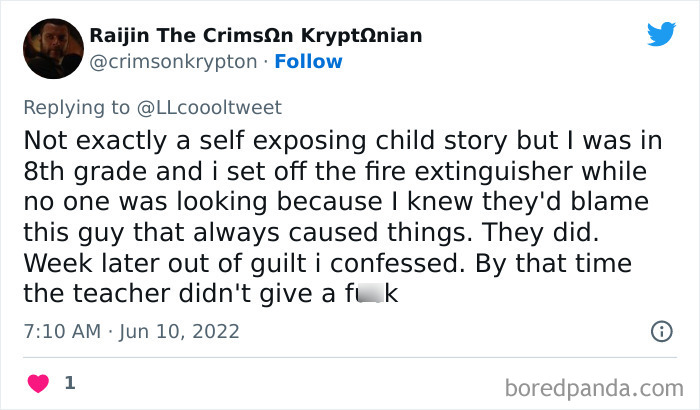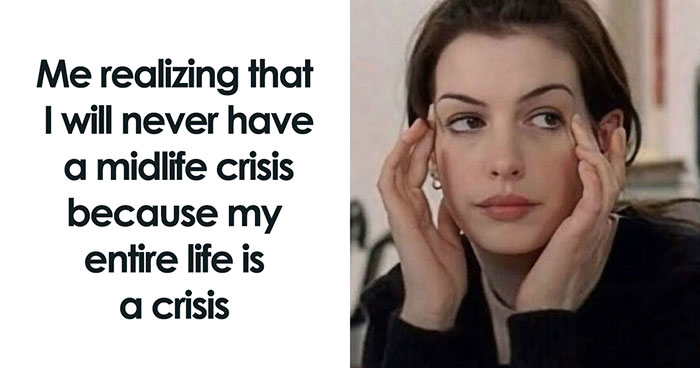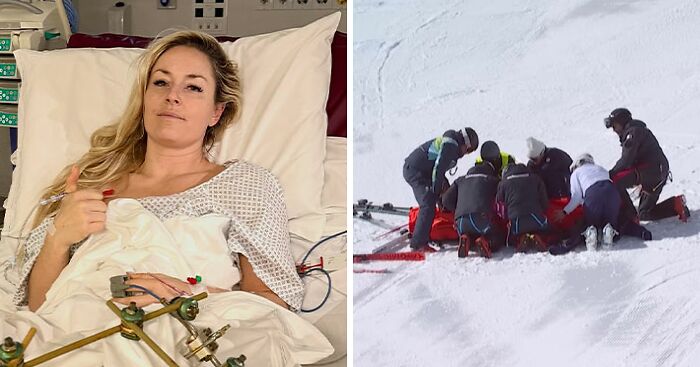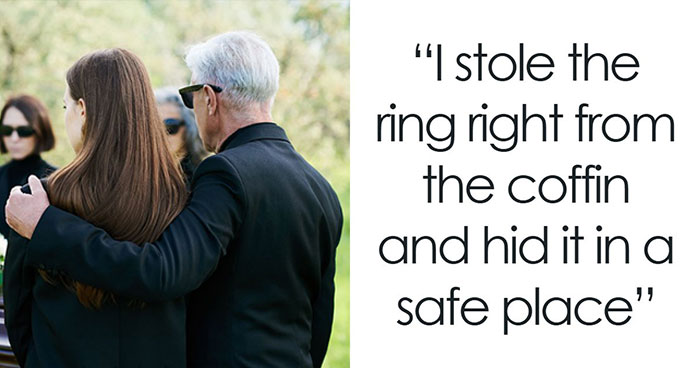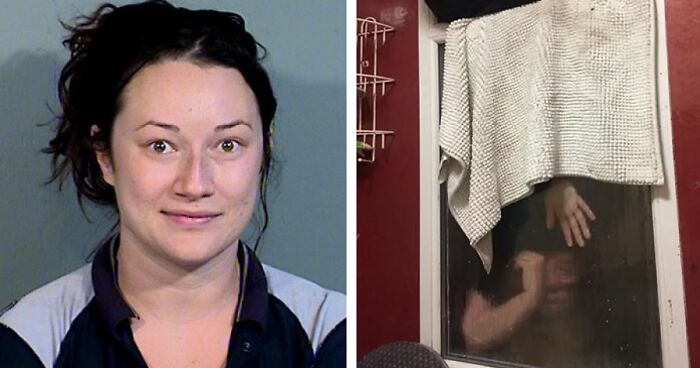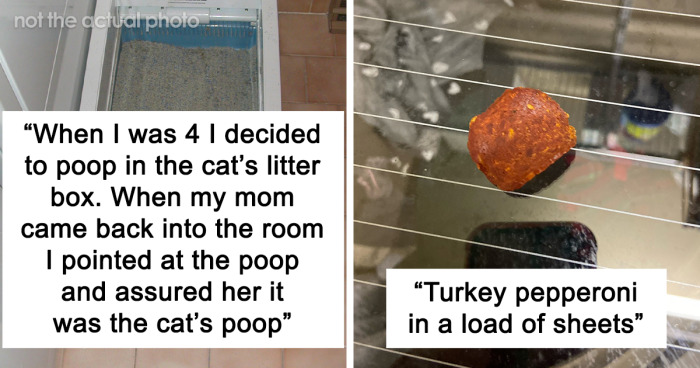
"Didn't Do It": 34 Times Kids Were Caught In The Act But Still Denied Any Responsibility
InterviewA child’s life can be one of such wonders. They don’t really know how anything works so everything feels possible. The laws of the material universe can bend and twist to their screwball plans and every day can be an adventure. Unfortunately, for the parents who have to follow in their wake, this can also involve bills, messes, and frequent facepalms.
Internet users shared the most confusing and hair-pulling examples of kids doing things they really shouldn’t have. We also reached out to Brenna Hassinger-Das, Assistant Professor of Psychology at Pace University-NYC to learn a bit more about children’s creativity. So scroll down and upvote the stories that made you feel happy it wasn’t your kid and comment if you have any tales of your own. If you want to see some more documented examples of children’s brilliant plans, click here and here.



Image credits: LLcoooltweet
This post may include affiliate links.
I have to shake my socks and shoes before putting them on, since my two cats love to somehow get random stuff into it, like dead bugs (ouch)
We asked Dr. Hassinger-Das why children need creativity for their self-development. “Creativity is the process of developing flexible thinking and coming up with new ideas and new uses for existing objects and materials. This process of exploration also helps children develop other critical skills. For example, as children use art materials like scissors and crayons, they also work on their fine motor skills. Devising new ways to use a favorite toy encourages children's problem-solving and development of executive functioning skills. Solving problems together also helps children foster social interactions and relationships.”
She also had some advice for parents trying to figure out how to introduce creativity into their children's lives. “Play is a great context for fostering creativity. Play allows children to exercise agency and explore new ideas within a familiar context. Parents can co-play with young children, using guided play techniques such as asking questions about what children are doing and helping to get them thinking about new concepts and ideas. With older children, parents can support their interests in art or games, from drawing comic book characters to playing creative video games like Minecraft.”
“I think the most important takeaway about creativity is it's more about the process than the outcome. The process of exploration and thinking differently about everyday experiences helps children to build a toolkit of ways to deal with problems later in life,” she added. All in all, the experiences shown in this article can be seen as learning moments, even if it costs a decent degree of frustration from the parents. At least they got a funny story out of it.
Ha! When I was like, 5, my brother(6) and I decided to play "barber shop". We took our stuffed animals and cut off their "hair" with kiddie scissors, then after we had the great idea to cut EACH OTHERS hair. Lets just say my mom wasn't thrilled, especially since my brother had SCHOOL PICTURE DAY in a few days(I basically snipped off all of his hair, and he cut me some bangs. He wore a hat in his school picture😂)
Many of these stories come from younger children, who are just old enough to walk and have some agency, but not yet old enough to wrap their heads around more abstract ideas. Behavioral researchers believe that at this stage in a kid’s life, they are not actually aware of ideas like betrayal or imagination. However, they are fully capable of, inaccurately, personifying inanimate objects. For example, if a child hits their head on a door by accident, they might describe the door as “bad.”
Then it obviously wasn't coming from the fire extinguisher. I wonder what did cause it.
This stage, sometimes called the preoperational stage, normally lasts until the child is about seven years old. During this stage, they do not really understand how to see beyond their own point of view. This no doubt helps inform some of the attempts at deception in this list. Who could ever see past the masterly plan to disguise wrongdoing by saying “wasn’t me.”
Before the age of seven, many kids also go through stages of magical thinking. In cases of grief or sadness, the child might believe that if they just think it didn’t happen hard enough, then any negative event would simply disappear. This logic and we are really stretching the meaning of the word here, applies to other things as well. So kids do really believe that by giving adults a cunning, alternative story for the evidence in front of them, i.e a missing cake, a half-eaten stick of butter, they will actually escape punishment.
I am sure the cat is gonna seriously consider scratching someone
I used to be good at guessing what I was getting. Once present when I was about 10 was a real mystery, so I carefully opened it and resealed it so well that no one knew. On Christmas morning, I told everyone that one is a new watch, and proceeded to explain how I knew so they would all be proud of what a great job I did putting it back together perfectly.
On the flip side, these are all signs that the child has a working and active imagination. They will want to supplement their imagination with new information and details, and constantly ask parents about how and why things are how they are. This poses a bit of a challenge since often enough, adults don’t actually know how to explain things. Like do you actually know why the sky is blue? The short answer, to save you a quick Google search, is that air molecules ‘scatter’ and blue light has the shortest wavelengths. Careful with this answer, however, as a more perceptive child might start following up with more hard-to-answer inquiries about physics.
Nobody caused lots of trouble at our house when my brother and I were small.
I got framed for several things in school. I also got ratted on. Come to think of it, I hated school prior to college...
Sounds like something I'd do if I had any sort of inclination to do something like that
This post is perfect for confirming I made the right decision in never having children.
This post is perfect for confirming I made the right decision in never having children.

 Dark Mode
Dark Mode 

 No fees, cancel anytime
No fees, cancel anytime 




